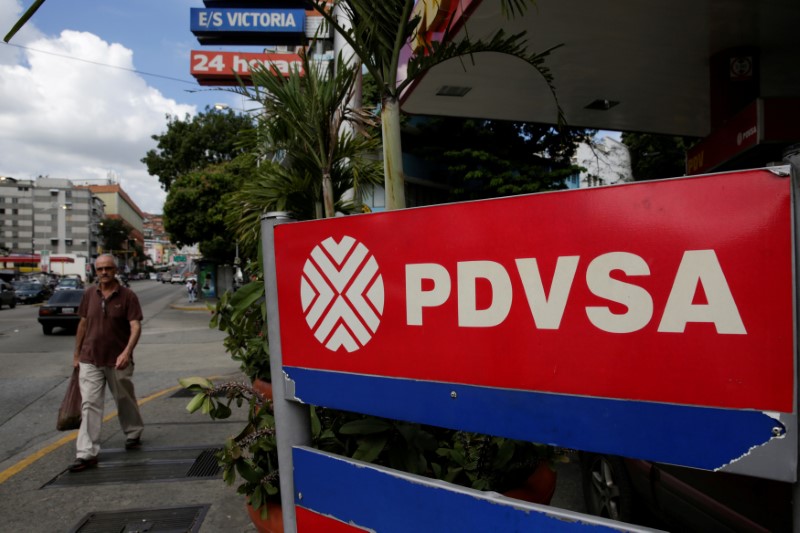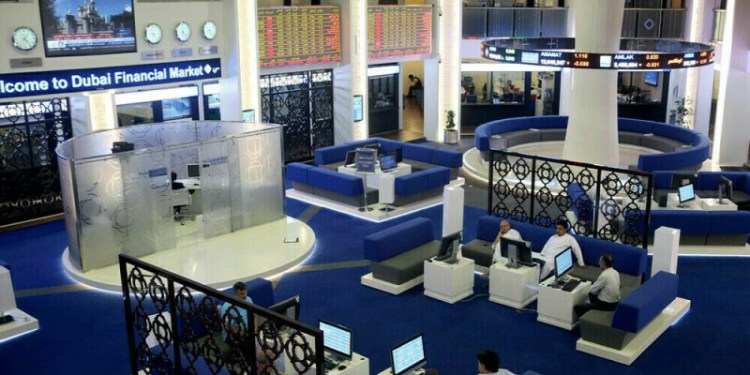 © Reuters. FILE PHOTO: Man walks past PDVSA corporate logo at gas station in Caracas
© Reuters. FILE PHOTO: Man walks past PDVSA corporate logo at gas station in CaracasBy Liz Hampton
HOUSTON (Reuters) – U.S. oilfield service companies exposed to Venezuela face new hits to earnings from the South American nation’s ongoing economic turmoil and U.S. sanctions on the country and state-run oil company PDVSA.
Insufficient investment, payment delays to suppliers, and the sanctions imposed by the administration of U.S. President Donald Trump have hammered Venezuela’s oil industry and saw production fall 13 percent in 2017.
On Friday, Schlumberger (N:) disclosed a $938 million write-down on its Venezuelan assets and receivables, citing political and economic woes affecting the country. It was the first big energy company to report fourth quarter results.
Schlumberger and other suppliers accepted promissory notes or reclassified Venezuelan receivables in recent years as a way to manage debts from PDVSA [PDVSA.UL]. But Friday’s charge signals troubles ahead for those with outstanding bills.
However, that is likely to be offset by improving business outlooks elsewhere as higher prices for crude boost oilfield activity.
Halliburton (N:) and Weatherford International (N:), which will report results over the next two weeks, are also owed money for their Venezuelan operations, the companies said in 2017 filings.
Halliburton in October said it was experiencing payment delays from its primary customer in Venezuela. At the time, it had $429 million in net trade receivables for its Venezuelan operations.
Meanwhile, Weatherford said in November that it would reclassify $158 million in receivables owed from its largest customer in Venezuela as non-current assets to reflect payment delays.
“The sanctions could affect our ability to collect payment on our receivables,” Weatherford said at the time.
A representative for Halliburton did not immediately respond to a request for comment. Weatherford declined to comment.
Schlumberger said it would remain in Venezuela and continue to seek payment for its work.
“It’s likely they’ll maintain a presence but only work if they are paid up front,” James West, senior managing director and a partner at investment bank Evercore ISI, said of the suppliers.
The United States in August slapped sanctions on Venezuela in a bid to punish actions by socialist President Nicolas Maduro, whose consolidation of power has sparked political turmoil. The sanctions prohibit dealings in new debt from the Venezuelan government and PDVSA.
Fusion Media or anyone involved with Fusion Media will not accept any liability for loss or damage as a result of reliance on the information including data, quotes, charts and buy/sell signals contained within this website. Please be fully informed regarding the risks and costs associated with trading the financial markets, it is one of the riskiest investment forms possible.
Source: Investing.com





























